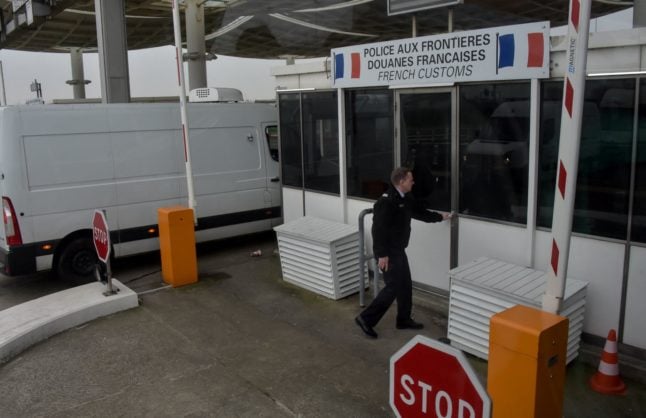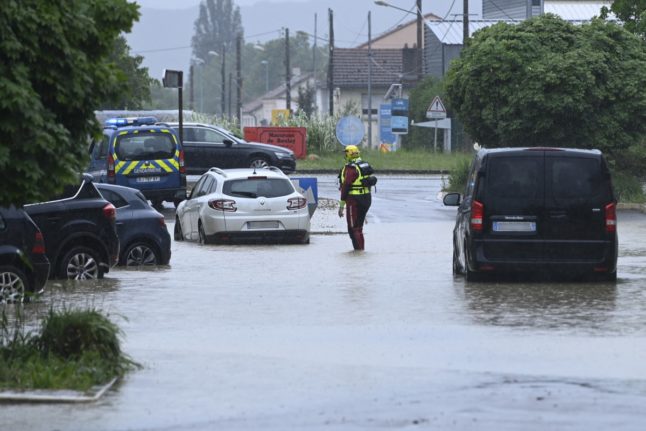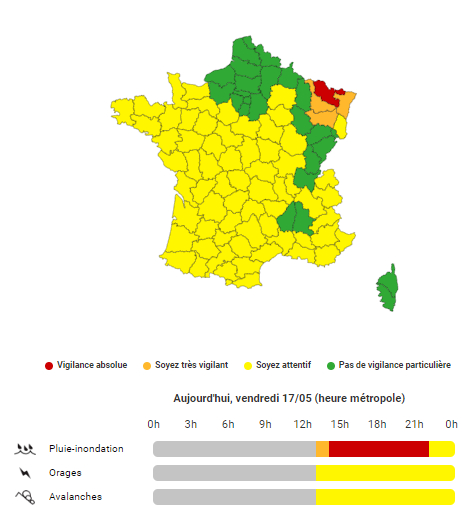The EU’s new Entry & Exit System of enhanced passport checks – including biometric checks like facial scans and fingerprints – is due to come into effect later this year.
You can read a full explanation of how it works HERE and see our frequently-asked-questions section HERE, including information for non-EU citizens who are resident in an EU country and the system for dual nationals.
EES will apply to the whole of the EU and Schengen zone and will apply at external borders, but not for travel within the Schengen zone itself (eg between France and Germany or Italy and Switzerland).
You can hear the team at The Local discuss the latest developments on EES on the Talking France podcast – listen here or on the link below
The EU has plenty of external borders from land borders such as the Greece-Albania border to the airport frontiers that occur when, for example, an American flies into Italy.
But while several nations have expressed concern that their infrastructure is not ready, the loudest and most dire warnings are coming about the border between France and the UK.
READ ALSO Travellers between France and UK could face ’14-hour queues’ due to new passport system
So why is this border such a problem?
The problems with the UK France border are threefold; volume of traffic, space and juxtaposed borders.
Volume of traffic – This is simply a very busy border crossing, about 60 million passengers a year cross it by ferry, plane, Channel Tunnel or Eurostar. For people travelling from the UK, especially those crossing by car on the ferry or Channel Tunnel, France is simply a stopping point as they head into Belgium, Germany, the Netherlands or to Spain or Italy.
Around 70 percent of those passengers are British, which means they will have to do the EES checks.
READ ALSO Could the launch of EES be delayed again?
Space – The second problem is to do with the space that is required to process all those passengers as several crossing points – especially the Port of Dover and the embarkation area at London St Pancras – are quite crowded and for various reasons don’t have room to expand.
Extra infrastructure is required to complete EES pre-registration checks and this will be difficult to physically fit into some crossing points – for context the EES pre-registration area for the Channel Tunnel at Coquelles covers 7,000 square metres.
Juxtaposed border controls – the UK-France border is also unique within the EU because of its juxtaposed border controls, which are the result of a bilateral agreement between France and the UK known as the Le Touquet agreement.
Juxtaposed border controls exist at Paris Gare du Nord and London St Pancras for those using the Eurostar, the ports of Dover and Calais and the Channel Tunnel terminals at Folkestone and Coquelles – these mean that when you leave the UK you get your passport checked by both British and French authorities, and then there are no passport checks when you arrive in France – and vice versa.
This means that if there is a hold-up at one border control it has a knock-on effect on the other and means that very long queues can quickly build up – as has been seen several times at the Port of Dover since Brexit.
The Brexit effect
Part of the problem with the UK-France border is that discussions about EES began while the UK was still a member of the EU, and then the conversation changed once it had left.
However, even when it was in the EU, the UK never joined the Schengen zone so there were always passport checks for travellers between France and the UK.
The difference is that EU citizens are exempt from EES – so those 70 percent of passengers crossing that border who are British would have been exempt from the changes had it not been for Brexit.
French and other EU citizens remain exempt and will not have to complete EES pre-registration once the system is up and running.
Therefore EES would have only applied to a tiny minority of travellers entering the UK – for example American tourists arriving into London – which logistically would be a much easier challenge, especially for the Port of Dover whose customers are overwhelmingly either British or EU nationals.
What about Ireland?
Had it not been for Brexit, the UK would have been in a similar situation as Ireland is now – since Ireland is a member of the EU but not the Schengen zone.
Under the new system Ireland will not use the EES system at its own borders and will carry on manually stamping passports.
However, anyone who has an Irish passport will be exempt from EES when they are travelling within Europe – for dual nationals this only applies of they are travelling on their Irish passport.
READ ALSO Your questions answered about the EU’s new EES system






 Please whitelist us to continue reading.
Please whitelist us to continue reading.
Member comments